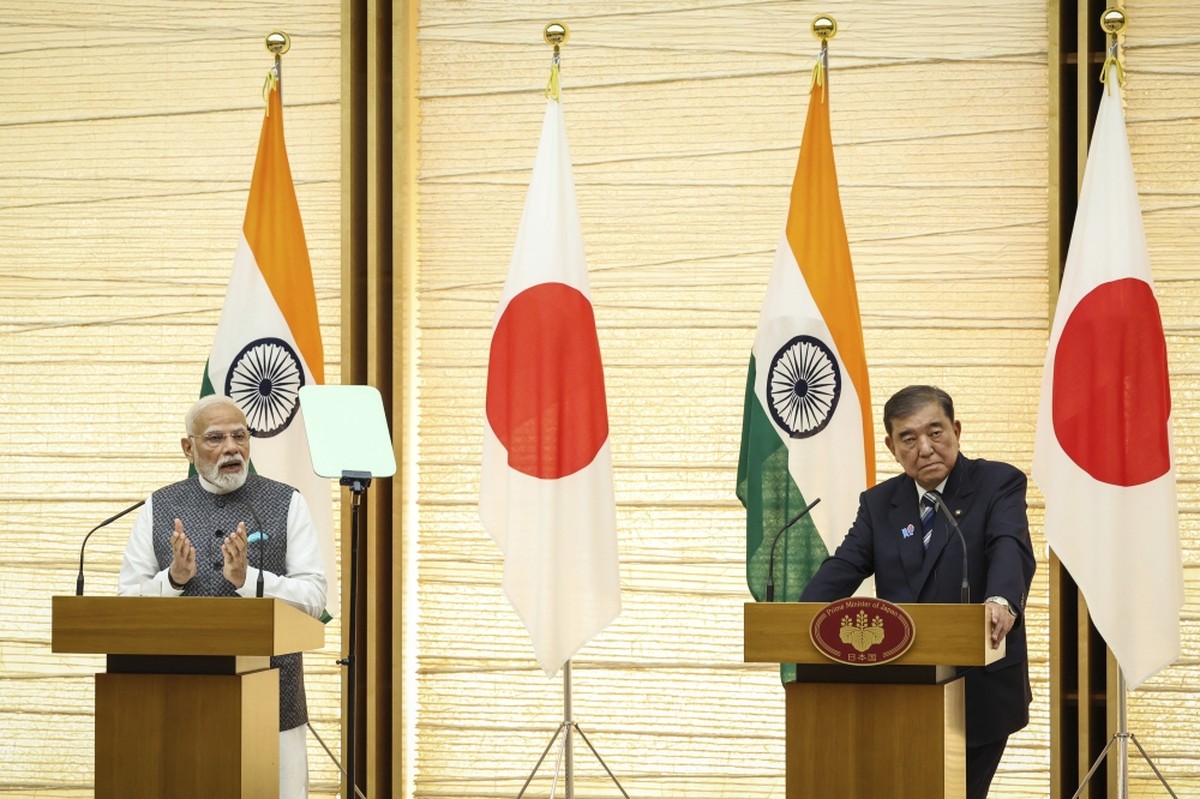30/08/2025
30/08/2025

TOKYO, Aug 30, (AP): The leaders of India and Japan agreed Friday to bolster economic ties while also boosting cooperation in defense, energy and other areas, as the two Asian powers face common challenges such as China’s growing influence and US tariffs. Following their summit in Tokyo, Indian Prime Minister Narendra Modi and Japanese Prime Minister Shigeru Ishiba agreed on a goal of boosting Japanese private investment in India to about $6.8 billion a year over the coming decade, up from about $2.7 billion a year in the 2010s.
They also agreed to increase exchanges of workers and students to half a million people in the coming five years. The two governments hope India’s young workforce can help address labor shortages caused by Japan’s aging and declining population. "We believe that Japanese technology and Indian talent are a winning combination,” Modi told a news conference.
The two leaders released a "joint vision” of cooperation for the next decade in areas such as security, defense, clean energy, technology and space, and signed a total of 11 documents. "As the economies and vibrant democracies of the world, partnership is extremely important not just for our two countries but for global peace and stability as well,” Modi said.
"We need to have to take advantage of each other’s strengths, to bring solutions to our challenges and to help each other," Ishiba said. In a separate joint statement, Ishiba and Modi reaffirmed their commitment to cooperate as part of the Quad framework of regional leaders, which also includes the US and Australia and is intended to counter China’s growing influence.
The two leaders said they are fully committed to a free, open, peaceful and rules-based Indo-Pacific. Without specifically mentioning China, they expressed "serious concern" over growing tensions in the East and South China Seas and "strong opposition” to unilateral actions to change the status quo.
On Sunday, Ishiba will escort Modi on a bullet train to Sendai in northern Japan, for a tour of a factory that makes machinery for producing semiconductors, before the Indian leader flies to China, the next destination of his Asia tour. Ishiba needs to rack up diplomatic successes to buoy public support because he is under pressure from opponents within his own party to step down over parliamentary elections results in July when his coalition lost its majority in the upper house.


